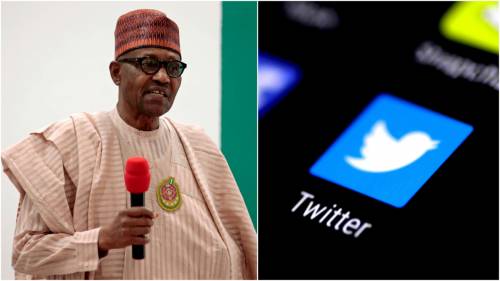oyogist has learned that the Socio-Economic Rights Accountability Project (SERAP) has criticised a declaration made by President Muhammadu Buhari Regarding when the ban on Twitter in the country would be lifted.
The president had given certain conditions for twitter to meet.
SERAP in reaction to this, urged president Buhari to withdraw the conditions imposed on the microblogging site pending the final ruling of ECOWAS Court on the case.
SERAP noted that the conditions given by the Nigerian government make a mockery of the case pending before the ECOWAS Court and also create an impression that the course of justice would be impeded.
A letter by SERAP’s Deputy Director, Kolawole Oluwadare on Sunday, read in part; “Pushing conditions on Twitter while the ECOWAS case is pending would prejudice the interests of the Plaintiffs, undermine the ability of ECOWAS Court to do justice in the case, damage public confidence in the court, and prejudice the outcome of the case.
“It is in the public interest to keep the streams of justice clear and pure, and to maintain the authority of the ECOWAS Court in the case. If not immediately withdrawn, the conditions would seriously undermine Nigeria’s international human rights obligations including under ECOWAS treaties and protocols, and have serious consequences for the public interest.
“Given that the only way in which SERAP and other plaintiffs can have a fair and effective access to justice is to allow the court to decide on the merits of the case before it, fairness and justice must, on the facts of the ECOWAS case, outweigh any stated national security conditions.
“Your government should allow the ECOWAS Court to decide these issues, especially as the Federal Government has made the arguments on national security before the court.
“The core of the principle of judicial independence is the complete liberty of the judge to hear and decide the cases before them on the basis of facts and in accordance with the law, without any improper interference, direct or indirect.
“The principle of the independence of the judiciary has also been enshrined in the Basic Principles on the Independence of the Judiciary, endorsed by the General Assembly in 1985.
“The Principles provide, inter alia, that it is the duty of all governmental and other institutions to respect and observe the independence of the judiciary (principle 1); that judges shall decide matters before them impartially without any restrictions or interferences, direct or indirect, from any quarter or for any reason (principle 2); and that there shall not be any inappropriate or unwarranted interference with the judicial process (principle 4).”
“SERAP therefore urges you to urgently withdraw the conditions imposed on Twitter, and to allow the ECOWAS court to decide on the suit brought by SERAP and other plaintiffs challenging the legality of the suspension of Twitter in Nigeria. Judgment in the suit is fixed for 20 January, 2022.”

